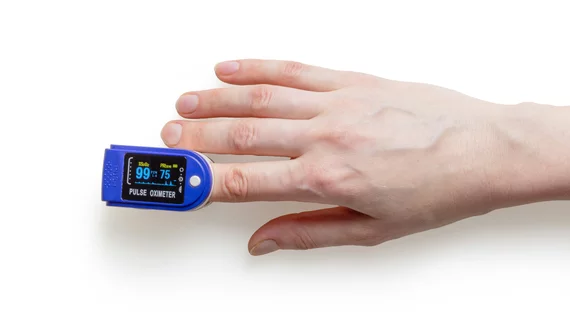FDA issues first-ever clearance for OTC oximeter
Pulse oximeter sales skyrocketed during the pandemic as consumers rushed to their pharmacy for the fingertip devices. There was just one issue: They didn’t work very well.
That will be changing now that the FDA has issued its first and only clearance for an over-the-counter fingertip pulse oximeter to the MightySat Medical from Masimo.
“This clearance brings consumers a pulse oximeter medical device powered by Masimo SET pulse oximetry—the same technology relied on by hospitals and clinics around the world to monitor more than 200 million patients every year and shown to have no clinically significant difference in accuracy or bias between light- and dark-skinned individuals,” the company says in a news release.
Before clearing Masimo’s OTC pulse oximeter, the FDA had said it did not review the accuracy of fingertip pulse oximeters advertised directly to consumers to monitor their own “health and wellness.”
Studies have found low-cost pulse oximeters sold to consumers without a prescription are often highly inaccurate and don’t meet professional standards. Notably, the devices have trouble functioning during patient motion or in patients with low perfusion or darker skin tones.
"More and more care is moving to the patient’s home,” says Peter Pronovost, MD, PhD, chief quality and clinical transformation officer at University Hospitals in Cleveland. “Patients now have the ability to monitor their oxygen levels and pulse rate, which can help them know when they need to seek care. To be useful, their pulse oximetry data must be accurate, and the accuracy of these devices varies widely."
Masimo said its SET technology is the primary pulse oximetry tech used at nine of the top 10 hospitals in the U.S. News and World Report Honor Roll. The MightySat Medical Pulse Oximeter is already on sale via Masimo’s website and will soon be distributed to stores nationwide, according to the company.

